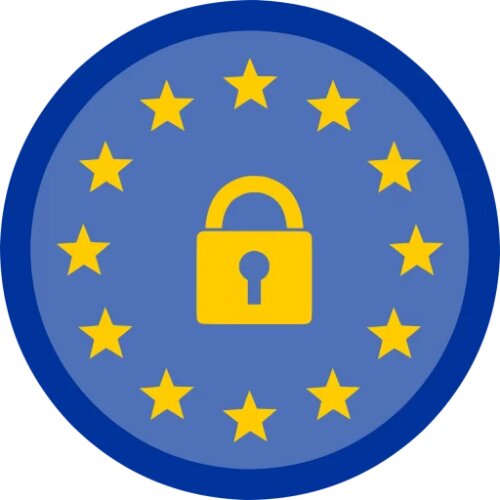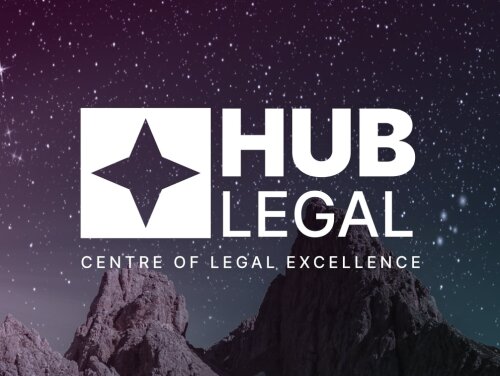Best Renewable & Alternative Energy Lawyers in Vilnius
Share your needs with us, get contacted by law firms.
Free. Takes 2 min.
List of the best lawyers in Vilnius, Republic of Lithuania
About Renewable & Alternative Energy Law in Vilnius, Republic of Lithuania
Renewable and alternative energy have become increasingly important in Vilnius and throughout the Republic of Lithuania. This shift is driven by the European Union’s climate goals and national commitments to improve energy sustainability and reduce carbon emissions. Vilnius, as the capital city, plays a key role in implementing and regulating renewable energy initiatives, such as solar, wind, bioenergy, and geothermal projects. The legal framework in this field governs the licensing, construction, connection to the power grid, funding, and operation of renewable energy sources, ensuring that both local and European Union requirements are met.
Why You May Need a Lawyer
Legal help is often essential when dealing with renewable and alternative energy matters for several reasons. Individuals, companies, property owners, investors, and developers in Vilnius may require assistance in obtaining permits, negotiating power purchase agreements, navigating regulatory compliance, or resolving disputes with government authorities or private partners. Lawyers specialized in this area can help with interpreting complex legislation, managing environmental impact assessments, drafting contracts, protecting intellectual property, and securing government incentives or funding. Legal guidance can also be critical if you face challenges from local communities or are subject to regulatory investigations and sanctions.
Local Laws Overview
Renewable and alternative energy activities in Vilnius are regulated by a combination of Lithuanian national laws, European Union directives, and municipal rules. The main Lithuanian legal act is the Law on Renewable Energy, which supports the development, production, and consumption of green energy. The government offers incentives like feed-in tariffs, competitive auctions, and grants for renewable energy initiatives. Grid access and connection rules are strictly regulated to ensure transparency and nondiscrimination. Environmental permitting is another key aspect, requiring compliance with both national and EU standards for sustainability, land use, and public health. Local regulations in Vilnius may set out additional zoning or permit requirements for certain types of installations, especially within historic or residential areas.
Frequently Asked Questions
What qualifies as renewable or alternative energy in Vilnius?
Renewable energy refers to energy produced from natural and continuously replenished sources, including solar, wind, hydropower, biomass, biogas, and geothermal. Alternative energy typically includes sources that are alternatives to traditional fossil fuels, often with lower environmental impact.
Do I need a permit to install solar panels on my home or business?
Most solar panel installations require building and environmental permits, especially for larger projects or those in sensitive areas. Smaller, rooftop installations often follow a simplified permit regime but still require compliance with local building codes.
How are renewable energy projects financed in Lithuania?
Funding options include private investment, bank loans, public investment programs, and grants or subsidies from the Lithuanian government and the European Union. Some projects also earn revenue from feed-in tariffs or participation in energy auctions.
Is there government support for switching to renewable energy?
Yes, the Lithuanian government provides incentives such as subsidies, grants, reduced taxes, and feed-in tariffs for renewable energy producers and property owners making sustainability upgrades.
What regulations apply to wind energy development in Vilnius?
Wind energy projects require environmental impact assessments, location permits, grid connection agreements, and must comply with noise and safety regulations. Certain locations may have restrictions based on zoning or cultural heritage protection.
Can I sell excess renewable energy back to the grid?
Yes, Lithuanian law allows qualified producers to sell surplus electricity to the grid, typically under a feed-in tariff scheme or via power purchase agreements with electricity suppliers.
What are the environmental requirements for renewable energy installations?
All renewable energy projects must comply with environmental laws, which may require assessments of ecological impact, noise, air and water quality, and land use. Some projects need public consultations or additional approvals if located in environmentally sensitive areas.
Who regulates renewable energy in Vilnius?
Regulation is handled jointly by national bodies such as the Ministry of Energy and National Energy Regulatory Council, along with municipal authorities that oversee local permits and zoning.
What happens if I do not comply with renewable energy regulations?
Noncompliance can lead to administrative fines, suspension of activity, withdrawal of permits, and potential civil or criminal liability. Authorities may require restoration of affected sites or compensation for environmental harm.
Can foreign investors participate in renewable energy projects in Lithuania?
Yes, Lithuania welcomes foreign investment in renewable energy, offering the same legal protections and incentives available to domestic investors, subject to standard regulatory approvals and procedures.
Additional Resources
If you need more information or support concerning renewable and alternative energy in Vilnius, consider contacting the following organizations:
- Ministry of Energy of the Republic of Lithuania
- National Energy Regulatory Council
- Environmental Protection Agency
- Invest Lithuania (for investors seeking information)
- Vilnius City Municipality - Environment and Energy Departments
- Lithuanian Renewable Energy Confederation
- European Union Directorate-General for Energy
Next Steps
If you require legal advice or assistance related to renewable and alternative energy in Vilnius, follow these steps:
- Clearly define your goals and gather relevant documents and project information.
- Research local law firms or consultants specialized in energy law and renewable projects.
- Schedule a consultation to discuss your situation and legal needs.
- Prepare questions about permits, compliance, funding, and timelines.
- Follow the advice of your lawyer regarding applications, contracts, and compliance matters.
- Stay updated on changes in local and EU legislation for renewable energy.
Taking these steps will help you navigate the complex legal landscape and ensure your renewable energy initiatives in Vilnius are successful and compliant.
Lawzana helps you find the best lawyers and law firms in Vilnius through a curated and pre-screened list of qualified legal professionals. Our platform offers rankings and detailed profiles of attorneys and law firms, allowing you to compare based on practice areas, including Renewable & Alternative Energy, experience, and client feedback.
Each profile includes a description of the firm's areas of practice, client reviews, team members and partners, year of establishment, spoken languages, office locations, contact information, social media presence, and any published articles or resources. Most firms on our platform speak English and are experienced in both local and international legal matters.
Get a quote from top-rated law firms in Vilnius, Republic of Lithuania — quickly, securely, and without unnecessary hassle.
Disclaimer:
The information provided on this page is for general informational purposes only and does not constitute legal advice. While we strive to ensure the accuracy and relevance of the content, legal information may change over time, and interpretations of the law can vary. You should always consult with a qualified legal professional for advice specific to your situation.
We disclaim all liability for actions taken or not taken based on the content of this page. If you believe any information is incorrect or outdated, please contact us, and we will review and update it where appropriate.












